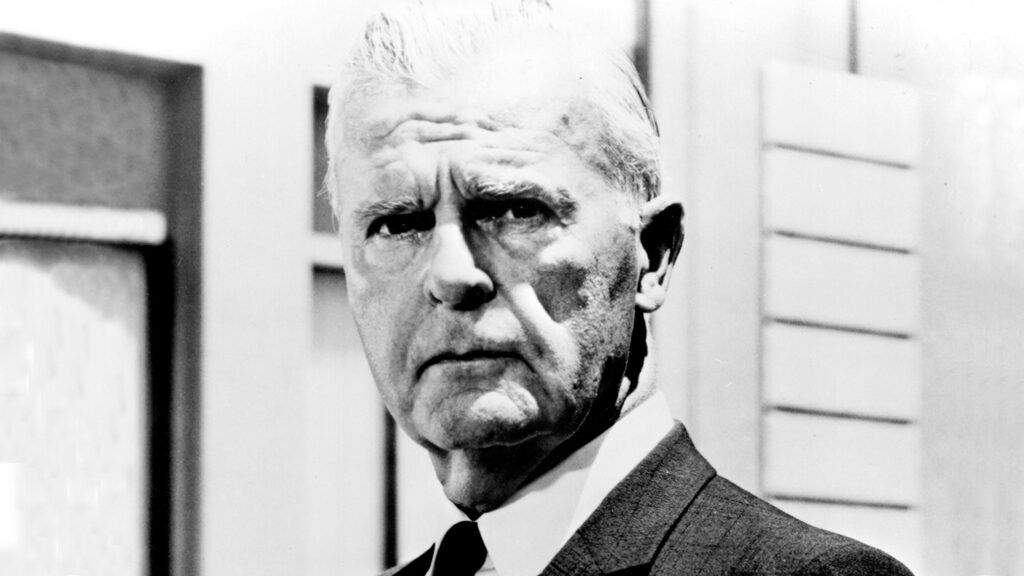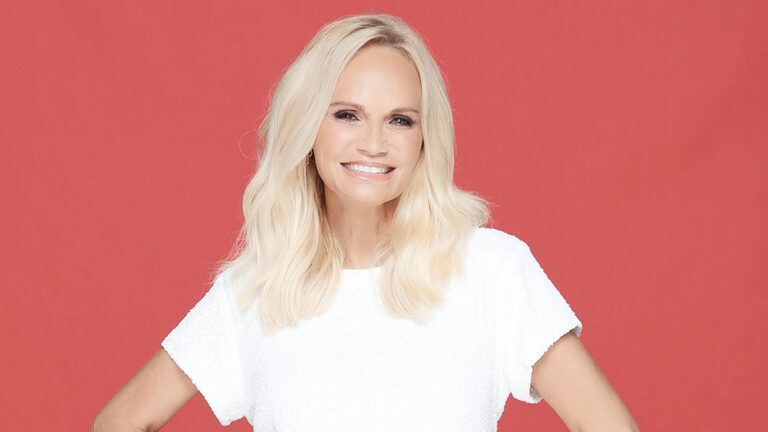I knew exactly where and how I would kill myself. Not far from Hollywood in the mountains above Santa Monica, there was an old abandoned quarry. Many times, on hikes, I had peered shudderingly over the rim. If a man stepped off that cliff, his body might never be found.
Looking back now, more than 20 years later, what I had in mind that day seems madness. But at the time there seemed to be a kind of insane logic in it. I had fallen from the very top of the Hollywood ladder, in the palmy days of the movie industry—with my five-servant home, the second largest swimming pool in California and six secretaries to handle my fan mail—to the level of a man who haunts the second-hand stores to clothe his family. I was hopelessly in debt, and as for earning money, not only was I unable to land leading roles any more: it had been a long time since I’d had a role of any kind. Only my life insurance could supply the needs of my family. If my death would give them food and shelter, so be it.
As a Catholic who at one time had planned to join the priesthood, self-destruction should never have entered my mind. I should have turned instinctively to prayer. But the truth was, I had prayed, frantically, urgently. I had bombarded heaven with demands for help. Nothing had happened. Now I had no words left, no faith, no hope. I felt abandoned, empty, useless, prayed out.
My sorry state was my own fault. For one thing, I had made some unwise financial moves. For another, through arrogance and impatience, I had alienated some important people in the film industry.
In the Hollywood of those days, even the hint of failure was enough to send an actor’s stock spiraling down. Mine had reached rock bottom. I wasn’t even an actor any more; I was working as a kind of errand boy for an actor’s agent. Salary: $50 a week, just enough to prolong the agony of unpaid bills and overdue rent, not only for me but for my wonderful, patient, uncomplaining wife.
But the basic reason for my disintegration as an actor and provider, I am certain, was my drift away from my faith. Success in Hollywood brought me into contact with all sorts of sophisticates and skeptics. I read the books they recommended. I listened when they proclaimed that God was a myth. I began to go to Mass when I felt like it—or skip it if I didn’t. I suppose that unconsciously I felt I was doing pretty well on my own. Religion? I could take it or leave it.
When things got tough, of course, I tried to swing back. I began to yell for help. When there was no answer, I decided that if God did exist, He wanted no part of me. He was blocking me out, wasn’t He, turning a deaf ear?
I did not know, that afternoon as I hurried toward death, that God’s mercy and love had never for a moment been withdrawn from me. As I made my way toward the quarry, I found that the road I had planned to take was blocked by excavations. So I took another road, a bit longer, that would take me to the same place.
Along the way, I saw a flight of stone steps I had never noticed before. Without meaning to, without reason, I ascended them. I came to a door I had never seen before. I rang the bell. No answer. I rang again, not even wondering why I was doing so. The door opened and there stood a familiar, friendly figure, Father Benjamin Bowling, a priest I knew slightly.
“Why, Neil,” he said, “how nice to see you. Come in. What are you up to?”
And I said, feeling like a man in a dream, “I’m on my way to kill myself.”
Father Bowling showed neither shock nor surprise. “Tell me,” he said cheerfully, “what do you think of our new club for the students?”
I stared around, bewildered. It was, Father explained, a place where Catholic students at nearby UCLA could come for recreation, friendship, spiritual guidance—a kind of haven from the pressures of college.
Father showed me around as if I had been a casual guest, and I followed him as if I’d been struck dumb. But before long I was telling my whole miserable story.
“Father heard me out, then said: “I know how you feel. Failure can be a crushing experience for a man. I came close to it with this club. At first I thought I would never raise the money, and then there were so many construction problems I feared the place would never be built. That’s why I appealed to St. John Bosco. Suddenly everything began to go right. The club is more his doing than mine, I’m sure. I’ve dedicated the chapel to him.”
“St. John Bosco?” I repeated. The name was only vaguely familiar.
“This time last century,” he said, “Father Bosco was working his head off in Turin, Italy, trying to provide housing and education for poor city children. Well, I was trying to do something for young people too, but failing miserably at it, so I asked Don Bosco to help. He must have or we wouldn’t be here now.”
“I suppose,” I conceded.
From my long-ago Sunday school days, I knew that just as friends request each other’s prayers, so we can request the prayers of saints. We can ask the saint to intercede for us by including our prayers with his to the Almighty, although it is God, of course, who answers the prayer. I knew this, as I say, but it was a long time since I had thought of it.
Father Bowling went on: “I feel that Don Bosco is the best friend I’ve ever had. From what you tell me, you need a friend with a little more faith than you can muster right now, Neil. Why not let Don Bosco be that friend? He may already be. You know, sometimes we choose our friends and sometimes they choose us. Ask Don Bosco to join you in your prayers for a job.”
I shrugged. “I’m prayed out, Father. I have no more words.”
“Then try these words.” Father smiled and handed me a tiny booklet. “The prayers in this booklet are a novena recommended by Don Bosco, and they’re all written out for you. All you have to do is read them, read them from your heart. Don Bosco will say them with you.”
I said I would try it, that I would try anything.
I made the novena, nine days of intensive prayer, representing the nine days the Apostles spent in prayer between Ascension Thursday and Pentecost Sunday, when the Holy Spirit descended upon them. As a spiritual exercise, novena prayers go back to the earliest Christian years, some of them composed by saints on their own search for God’s help.
On the ninth day of prayer, as I was shaving, I heard a voice inside me say clearly and distinctly as though someone had spoken in my ear, “Get in touch with Dan Kelly at Universal today.” I was so startled that I almost dropped my razor. I told myself that my imagination was playing tricks on me, and went on with my shaving. Again the inner voice spoke, neither louder nor more commanding than the first time. And it spoke the same words.
Now if there were one person in Hollywood who would never help Neil Hamilton it was Dan Kelly. He was one of the people I had treated with contempt and arrogance when I was securely perched—so I thought—at the top of the tree. Now he was head casting man at Universal. I knew I had about as much chance of getting in to see him as of jumping over the moon.
But when I told my wife of this extraordinary happening she said quietly, “You’d better call him.”
In fear and trembling I called his office. His secretary said she thought she could slip me in to see Dan. When I finally stood there and tried to apologize for my past actions he brushed my apologies aside. There was a job, a part he thought I might fit.
From that moment it was as if a whole series of locked and bolted doors had swung open. And they have kept opening ever since.
As Father Bowling felt about his club, I now feel about my return to work, my return to life, my return, above all, to God. Don Bosco is the best friend I’ve ever had; the friend, I now believe, who chose me on my walk to death and made the journey with me back to life. The goal of all friendship is for each to draw the other closer to God, and Don Bosco, already with God, achieved precisely that for me.
This is the message I try to bring now to other defeated and desperate people: “Don’t despair, don’t give up. No matter what it seems like, you are not alone. There are more friends around us than human eyes can see.”
For more inspiring stories, subscribe to Guideposts magazine.





